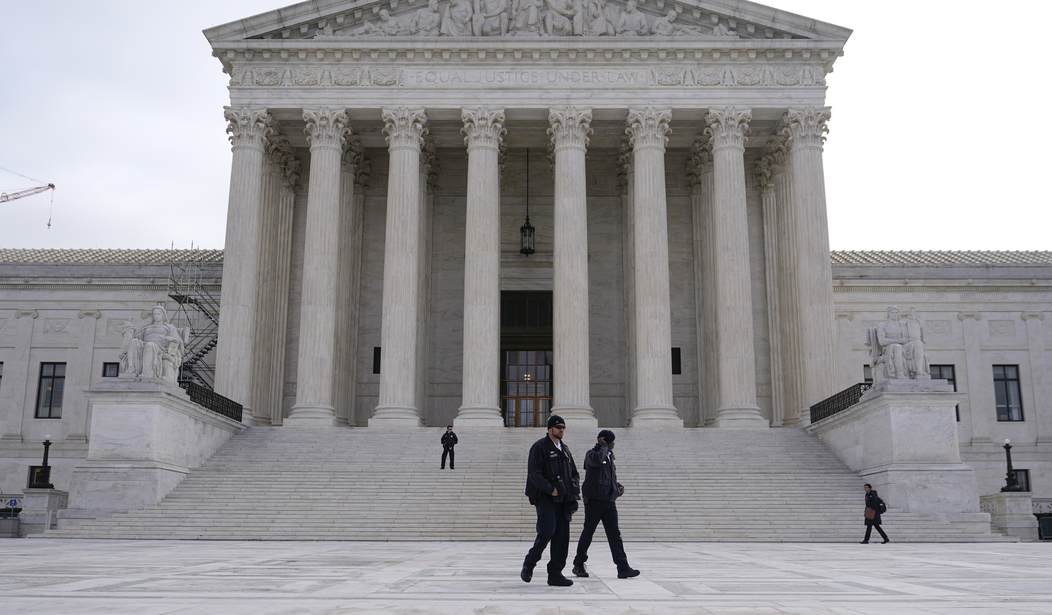The Supreme Court has agreed to decide a case that, if at least five justices render a majority opinion based on common sense and a reasoned interpretation of federal law, will stop an abusive practice that for three decades has cost businesses and consumers untold millions, if not billions of dollars.
The law at the heart of the lawsuit (Acheson Hotels v. Deborah Laufer) is the 1990 “Americans With Disabilities Act,” commonly known as “ADA.” The case itself arose in Maine, but the Court’s decision will have significant effects across the entire country.
ADA is a perfect example of a federal law with insufficient guardrails to prevent abuses, allowing lawsuits against businesses for even very minor technical violations, such as the height of a counter in a restaurant’s bathroom, then forcing businesses to defend themselves in court even if they desired to fix the problems without litigation.
Consequently, there has arisen over the past three decades a “cottage industry” of ADA “testers.” q
These “testers” hire lawyers to file lawsuits against businesses, usually small businesses, hoping – actually planning – that they will settle rather than engage in lengthy and costly litigation.
Often, the individuals threatening or actually filing these lawsuits have not suffered any actual harm, but rely on alleged technical violations of the ADA’s language and detailed implementing regulations. (In one noteworthy case, a tester sued a “pedicure station” at a spa in New York City for an alleged ADA shortcoming, even though the “victim” had no feet.)
Recommended
Because of this costly pattern of ADA abuse, the “ADA Notification Act” was introduced in the House of Representatives in 2000 simply to require that before a person can sue a business for a violation of the ADA, they must first give the business notice and allow 90 days within which to remedy the defect and avoid litigation.
Clint Eastwood, who in 2000 owned the Mission Ranch Hotel in Carmel, California, testified before a House Judiciary Subcommittee (on which I served at the time), urging support for this limited and reasonable amendment to the ADA. The famous actor testified how he and other similar business owners were being unfairly targeted by ADA testers.
Notwithstanding that the proposed amendment would in no way diminish the substance of the ADA, but would have simply required notice and opportunity to correct alleged defects, the Congress failed to act.
As a result of that congressional timidity, this well-known pattern of ADA abuse has continued for 23 more years, forcing many small businesses to succumb to what is in effect legal blackmail – a practice may finally come to a well-deserved end if the High Court decides the Laufer case in favor of the small hotel in Maine.
As the hotel’s lawyers note in their petition to the Supreme Court, the facts of their case present an “ideal vehicle” by which to correct this longstanding and costly pattern of ADA abuse. Indeed it does.
The plaintiff in the case, Deborah Laufer, is wheelchair-bound and lives not in Maine but in Florida. She admittedly had no intention of visiting Maine, much less staying at the hotel she is suing, and had suffered no injury. No injury, that is, other than what she claimed were “downstream consequences” of “humiliation and frustration” solely because the hotel’s website failed to adequately describe that its rooms and cottages were ADA compliant as required by federal regulations.
You cannot make this stuff up.
In pressing her case, Laufer openly admitted she is a prolific professional ADA tester, who has filed more than 600 such cases in the past five years, including seven on the very same day in September 2020 that she targeted Acheson.
The federal trial court saw through Laufer’s charade, and dismissed her lawsuit for lack of standing. The Court of Appeals reversed the lower court, concluding that Laufer indeed suffered “sufficient stigmatic [and] informational injury” by virtue of the sole fact that the hotel’s website at the time did not adequately inform her whether it was fully ADA compliant.
If a Supreme Court majority fails to reverse this case, it will have enshrined one of the most blatant, costly, and, indeed, idiotic patterns of abuse of any federal law, and in so doing will open the floodgates for immense further abuse.
Bob Barr represented Georgia’s Seventh Congressional District in the U.S. House of Representatives from 1995 to 2003. He served as the United States Attorney in Atlanta from 1986 to 1990 and was an official with the Central Intelligence Agency in the 1970s. He now practices law in Atlanta, Georgia, and serves as head of Liberty Guard.
























Join the conversation as a VIP Member